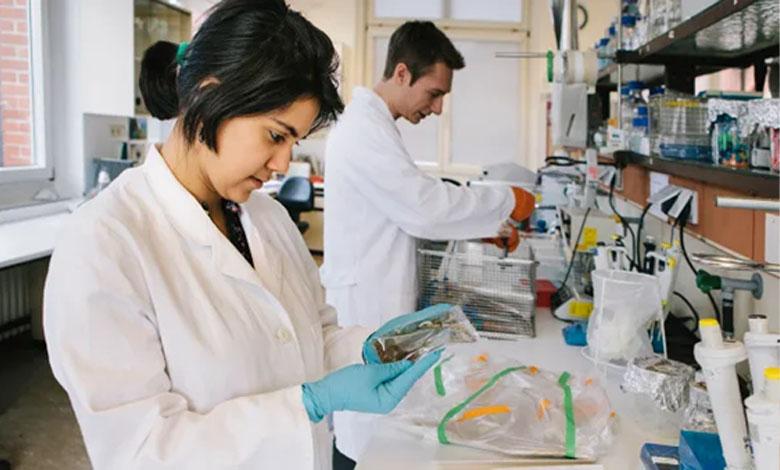Science under attack: how Trump opened the hunting season for scientists — and what does it mean for Europe?

The reduction of state funding of science and education is an alarming trend that affects the scientific development of many countries. Recently, the United States has been facing a wave of cuts in this area: the administration of Donald Trump has significantly reduced spending on scientific research, which has already led to mass layoffs at leading universities and partial layoffs of the Department of Education.
Against the background of these developments, the European Union seeks to take advantage of the situation by attracting American scientists who, due to financial constraints, may seek better conditions abroad. Twelve European countries have initiated programs to attract researchers, offering them stable funding and a comfortable work environment.
A similar problem exists in Ukraine, where underfunding of science has long been a chronic phenomenon. Despite talented scientists and high potential, the domestic research field suffers from insufficient funding, bureaucracy and the outflow of personnel abroad. Can we find a way out of this crisis? What lessons can Ukraine learn from the American experience?
Europe against the unmotivated reduction of the scientific budget
European countries are proposing a strategy to attract researchers from the United States in response to cuts in education and science funding by the American government.
In a joint letter to the European Commission, which is the order of the publication Political, the governments of these countries said the EU needed a “surge in attractiveness” to attract talent from abroad, which could suffer from interference in research and “unmotivated and brutal” budget cuts. French Science Minister Philippe Baptiste emphasized the need to quickly create conditions for those who want or are forced to leave the United States.
Although the letter does not directly mention America, there are allusions to the situation in that country. In particular, it says that “the modern international context reminds us that scientific freedom can be threatened anywhere and anytime.”
The letter proposes several measures to attract scientists, including special funding, adapted immigration rules and strengthening scientific partnerships with leading countries. The countries that signed the letter also call on the European Commission to organize a meeting of EU science ministers in the coming weeks to develop a common strategy.
Some European universities have already started to act. The Free University of Brussels has announced the opening of 12 vacancies for international researchers with a “special focus on American scientists”. France’s Aix-Marseille University has launched a “Safe Space for Science” program, hinting that some American researchers may feel pressured or hindered in their work.
The letter, addressed to the European Commissioner for Innovation, Kateryna Zaharieva, was signed by the governments of France, the Czech Republic, Austria, Slovakia, Estonia, Latvia, Spain, Slovenia, Germany, Greece, Bulgaria and Romania.
The Trump administration continues to dismantle the US Department of Education, announcing cuts of more than 1,300 employees — nearly half of the workforce. Under the pretext of “efficiency” and “student support,” the department is eliminating entire divisions, effectively reducing its role in providing access to education.
Education Secretary Linda McMahon says the cuts are aimed at eliminating duplicative functions, but they come amid a larger administration move to dismantle the state apparatus. Meanwhile, the ministry is trying to mitigate the effects, promising a 90-day transition period with wages and benefits.
The moves are part of a general trend of cuts in federal education funding that have already caused mass layoffs at universities and threaten to further erode support for low-income students. As a result, federal education in the US may lose some of its functions, and its future will depend on private funding and market mechanisms.
The U.S. Department of Education is cutting roughly half of its staff, and universities like Johns Hopkins are being forced to lay off employees due to the loss of state funding.
Academic freedom of Americans is ready to be supported in Paris and Brussels
In response to challenges to academic freedom, University of Aix-Marseille launches the Safe Place For Science program is a safe space for scientists who want to continue their research in a free and supportive environment.
The program is aimed at scientists, particularly from the US, who face pressure or restrictions in their own country. The university offers modern infrastructure, international cooperation and research support in the fields of climate, ecology, health and humanities.
The AMIDEX Fund will finance the project for 15 million euros over three years. They plan to involve about 15 researchers.
Free University of Brussels (VUB) announced on the opening of 12 postdoctoral positions for international researchers, with a special focus on American scientists in socially important fields. Financing in the amount of 2.5 million euros is provided by the European Marie Skłodowska-Curie program. Also, as part of the Brains for Brussels initiative, the university actively invites American professors to relocate and offers 18 apartments for temporary residence of researchers at the Brussels Institute for Advanced Studies.
The reason for this initiative is the political and ideological censorship of scientific research in the US under the Trump administration. As VUB Rector Jan Dankert stated, the university is creating a special contact center for American scientists who are ready to work in Brussels. He emphasized that due to political interference, the USA has already canceled two joint projects of VUB with American partners. They concern young people and the influence of misinformation and transatlantic dialogue on them. It is quite expected that the Trump Administration does not need such studies, because its attitude to fakes and disinformation, as well as to interaction with European allies within the framework of NATO, is widely known.
VUB positions itself as a leading European center in climate, artificial intelligence, security and medicine research. Founded in 1834 to protect academic freedom, the university declares support for independent research without state or church interference.
VUB is also launching an updated site for international scholars and a contact center for American researchers who want to work in Brussels and get advice on visas, grants and living in Belgium.
Trump vs. Health Care
In February, the administration of Donald Trump announced on significant reductions in grant support from the US National Institutes of Health (NIH) to research institutions. It is one of the largest sources of funding for scientific and medical research in the United States.
The proposed cuts could reduce funding to individual universities by more than $100 million, which would critically affect scientific projects in the fields of medicine, biotechnology and public health. In response to these intentions, some universities have already frozen scientific projects or postponed their implementation. At the same time, a number of educational institutions and research centers are challenging these cuts in court, due to which the implementation of the decision has been postponed for now.
The reductions primarily affect projects in the field of health care, the fight against infectious diseases, oncology, and the study of cardiovascular diseases, which puts fundamental research and applied medicine at risk. Trump’s scandalous statements about medicine and science during the COVID-19 pandemic during his previous presidential term are widely known. Then he suggested “injecting disinfectants” or “treating with ultraviolet light”, publicly undermining the credibility of evidence-based medicine. Such statements shocked the scientific community.
What does Trump have against science and scientists?
Donald Trump’s policy of reducing financial support to scientific institutions is fully consistent with his ideology and political strategy.
As you know, the Trump Administration is consistently promoting a course to reduce federal spending and government influence on the economy and society. Scientific research, especially fundamental research, is often financed precisely at the expense of the state. Trump and his team consider this excessive spending that does not provide immediate “profit” for the budget or business.
In addition, many leading American universities and research institutes have at one time allowed themselves to criticize Trump’s policies, from immigration to climate change. In response, the White House has begun to openly pressure these institutions, depriving them of funding for programs that run counter to the administration’s course. This is especially true for research in the field of climate, human rights, gender equality and racial discrimination.
Trump is betting on supporting military, applied and commercial science that gives a quick economic effect or strengthens national security. At the same time, basic research, humanities and social sciences are considered “unnecessary expenses” or even “hostile” to the administration’s policy.
Attacks on universities and “liberal” academic circles were part of a strategy to mobilize a conservative electorate that is often skeptical of science, especially on climate change, vaccines or gender policy. The reduction in grants demonstrated Trump’s tough stance against the “elites” and the “Washington Swamp.”
The pseudo-scientific views of Trump himself, which contradict basic scientific knowledge and undermine the authority of science as such, are also of particular concern. In particular, Trump called global warming a “Chinese invention” to weaken the American economy and withdrew from the Paris Climate Agreement. This decision was accompanied by a reduction in funding for climate research and a ban on government agencies using the term “climate change” in official documents.
Therefore, Trump has a systemic conflict with the academic community, which he perceives as a center of opposition and a bearer of values alien to his conservative and nationalist politics.
Lessons for Ukraine
The reduction of funding for science and education causes not only the curtailment of research programs, but also the mass outflow of scientific personnel abroad. The US experience shows that the loss of financial support leads to layoffs, which in turn creates favorable conditions for the European Union, which actively attracts American researchers.
This trend is particularly dangerous for Ukraine, since already a large number of scientists leave in search of better working conditions. Insufficient funding, bureaucratic barriers and a lack of prospects force Ukrainian scientists to look for opportunities outside the country. If an effective strategy for supporting science is not developed, Ukraine risks finally losing a significant part of its intellectual potential, which in the long run will have critical consequences for the technological and economic development of the country.





